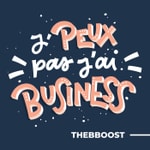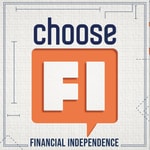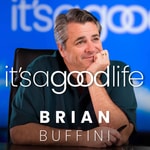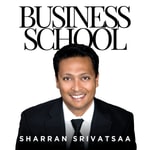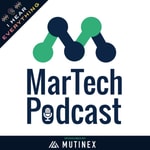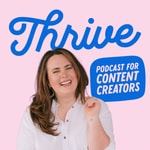Fundraising Freedom Podcast with Mary Valloni – Details, episodes & analysis
Podcast details
Technical and general information from the podcast's RSS feed.
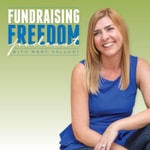
Fundraising Freedom Podcast with Mary Valloni
Mary Valloni
Frequency: 1 episode/8d. Total Eps: 181

Recent rankings
Latest chart positions across Apple Podcasts and Spotify rankings.
Apple Podcasts
🇬🇧 Great Britain - nonProfit
10/05/2025#82🇺🇸 USA - nonProfit
09/05/2025#57🇬🇧 Great Britain - nonProfit
03/05/2025#95🇬🇧 Great Britain - nonProfit
22/04/2025#79🇬🇧 Great Britain - nonProfit
21/04/2025#79🇨🇦 Canada - nonProfit
20/01/2025#98🇨🇦 Canada - nonProfit
19/01/2025#83🇨🇦 Canada - nonProfit
18/01/2025#73🇨🇦 Canada - nonProfit
17/01/2025#22🇨🇦 Canada - nonProfit
10/09/2024#100
Spotify
No recent rankings available
Shared links between episodes and podcasts
Links found in episode descriptions and other podcasts that share them.
See all- https://emeraldcitypro.com/
1293 shares
- https://mikekim.com/
167 shares
- http://maryvalloni.com
158 shares
RSS feed quality and score
Technical evaluation of the podcast's RSS feed quality and structure.
See allScore global : 32%
Publication history
Monthly episode publishing history over the past years.
Episode 181 | What It Looks Like to Focus Your Vision
mercredi 16 décembre 2020 • Duration 22:27
If you have been following the Fundraising Freedom Podcast, when I first started it I actually called it the Mary Valloni Show. And if you've been following for a while, you know that I follow the steps that I teach in my book, Fundraising Freedom. Those steps follow the acronym FREEDOM because what I want for you, and what I want for me, is freedom. So, I have been spending the last several weeks and really the last several months thinking through what my vision is. What does it actually look like to focus your vision? 2020 has obviously caused us to have to take a step back and really look at everything. What is your vision for your life; the passion and purpose that you have for the work that you do? If you're anything like me, you've probably had some moments where you're like, ‘what am I doing? What is happening? Where do I even fit into all of this?’ I’ve spent a lot of time journaling and walking through my vision for this podcast, my vision for my business, and trying to really pull back the layers and remind myself why I do the work that I do.
In chapter one of Fundraising Freedom, I share with you that I really want to make sure that you have your mission, your vision, and your timeline in your budget. I also want to make sure that you know exactly why you're doing what you're doing. If you don't have a passion for the work that you're doing, people will see that. Usually, that means that your donations will run parallel to that. You may see that your donations declined because the people just don't follow this movement that you have created for your cause. At the top of every podcast episode, I talk about how I want to educate, encourage, and empower fundraisers to raise more funds and have more freedom. And I do believe that that is at the core of what I do. That is my mission. I want to teach you, I want to encourage you, and especially this year, I want to encourage you to keep going and to not give up. I want to empower you to know that it's possible to take that education and really step out into a new place in the work that you do so that you can speak on behalf of the people you serve. Those three core tenants are what I believe, and I spent several years really trying to nail down what that mission was. Of course, on the vision side, I've always wanted to end the lack and scarcity mindset. In the nonprofit sector, even the word nonprofit means not for profit. And so many people look at our nonprofits and say, ‘well, you can do this on less, you don't need that much.’ As nonprofit leaders, you are told that you maybe shouldn't make as much as you make or that you shouldn't be compensated well for the work that's being done and I just do not believe that I believe that you should be compensated well.
I also believe that your charity should have every dollar that it needs to actually end whatever problem you are trying to solve. I would say 100% of you are trying to raise dollars for your nonprofit because whatever you're trying to fix wasn't fixed by the for-profit sector. So not only do you have to do this on limited resources, you have to follow the government guidelines and you have to do it with very minimal income. I understand the challenges that you are faced with and I get that, and I feel your pain deep within my soul. I mean, I have been doing this for 20 years, and I know that you guys sacrifice, and you do this with very minimal rewards. I just think you guys are absolutely incredible; the heart that you have for the people you serve is just off the charts. I just want to tell you how much I appreciate the ability to share with you some of the things that I've learned in the nonprofit space. Of course, we know we can always do better and that there's always more that can be done. But the thing is that you guys are showing up every single day, doing the hard work that somebody else couldn't accomplish. For that, I just want to give you the biggest high five and virtual hug and to let you know that I'm really just so grateful that I get to really do life with you guys.
I’ve had to have some tough conversations with myself, and I'm sure you have been in this same boat, trying to figure out what are we going to do as we move into the new year. How are we going to stay focused on what we were actually called to do? For me, I’ve had such clarity in the last year that I was really called to help faith-based organizations. My heart is for people who are sharing the gospel and helping change lives. I've launched several programs over the last several years, mostly on one-on-one coaching and group coaching; helping people raise money in a group environment. The reason why I did those things was that that's what worked for me. So, I wanted to create an environment for you so that you knew that you weren't alone, which was my why statement. That was the why behind everything; I do not want you to be alone. I do not want you, for one second, to feel alone in the work that you're doing because you're not. You have so many people, me included, who care about you, who care about your work, and the fact that you are spending every day doing the hard stuff that nobody else is willing to do.
I've launched some programs, one of which is called Fundraising Freedom Academy. Several of you joined in and saw really, really great results. I mean, hundreds of thousands of dollars, which was just absolutely incredible. And to me, I was really humbled by the fact that those students of mine trusted me every couple of weeks, as we transitioned some of the things that we were doing, and you believed that what I was teaching was effective. Almost three years ago, I launched a program called Fully Funded Academy with my friend Mike Kim. I had actually been following Mike on his Brand You podcast for a couple of years as I was trying to build out my own personal brand, Mary Valloni Consulting. When I actually got a chance to meet him, we sat down and decided that we were going to open up a program called Fully Funded Academy, I was so excited because I had such a passion for missionaries, but it was really more of a passion project. When we launched that program, it was just absolutely incredible. We have hundreds of students now and that program has grown exponentially over the last few months. And I know that the writing is on the wall, that I have to put more of my focus on those students of mine.
If you joined in on my webinar this week, you know that I have opened up a new program called Fully Funded Orgs. Fully Funded Orgs is all about raising funds for your organization. It’s a modification of my former program, Fundraising Freedom Academy. But this is really just streamlining and getting back to focusing my vision on helping those faith-based organizations and individuals. I really cannot tell you how thrilled I am about all the people who have already joined. We've already had people reaching out and sharing that they are so excited about this program and want to share with their organizations and the people that they knew about this resource. This is a program that runs for a year and is specifically focused on raising those big dollars - six figures, even seven figures for your organization. But the really great thing is, is that I have this whole team of coaches who are helping me, I have people who are experts in the space of administrative support, website support, and large-scale major gift donations. I know that I can only do so much on my own – I know a lot about fundraising, but we're always better together and I want to follow what I teach in step 3 of Fundraising Freedom, which is to enlist your team. I want to bring people around my students and make sure that they are taken care of and that they have the resources they need to continue to grow year after year after year. I'm officially starting my first session on January 6th.
I do want to share with you that because of these big things that are happening through Fully Funded Orgs and Fully Funded Academy, as well as my one-on-one coaching, I have decided to make some shifts for 2021. One of those big shifts is that I will be putting this podcast on hiatus. I don't want to say that I won't ever do another episode on this show. But I do want to share with you that because I'm shifting my attention over into those programs that I'm doing, I have another podcast. If you have not already listened, we have two seasons of the Fully Funded Podcasts that are live. You can immediately go there and check out those episodes. I love podcasting and I love helping people raise money so I’m not going anywhere. I will continue to share resources, educate, encourage, and empower nonprofit leaders until I am in the grave. Because I believe in you, I want to help you however I can. But I want to make sure that I'm also available and really there for my students. I have this really crazy radical empathy for these ministry leaders and for these faith-based nonprofit leaders. You are welcome to jump over there, download, and subscribe to that podcast. Every episode that we do is also on YouTube so you can watch these interviews and actually see me have conversations with some of these really great leaders in the nonprofit and ministry space.
Fully Funded Academy is an introductory level of raising support. My partner Mike Kim, who is a marketing expert, has written support letters and templates for emails or for blog posts. I mean, the resources are crazy good. Mike is the best in the industry - he's a former copywriter who teaches copywriting and is so good at what he does. It's only $49 a month and that is full price, it’s never going to go up on you. I invite you to join us over there, I do calls twice a month. And then Fully Funded Orgs is also two calls a month. So, for anybody who joins in on Fully Funded Orgs, they actually get four weeks every single month, with resources available to them from my team and me at Fully Funded Academy. We not only do the teaching with the coaching, but we also have a community on Facebook. You can post questions or whatever is going on in your fundraising world, and those people are there for you. They're just absolutely incredible people and so that is something that I just want to make sure that you know is available.
I simply cannot share with you how much I appreciate you and how I appreciate the ability to do this podcast. I started this podcast in January of 2017 and nearly every single week, I have been on the microphone sharing some crazy ideas that I have about fundraising. I have loved every second of it and as I said, podcasting, in general, is something that I will continue to do. As we roll into the holiday months, I want to wish you guys a Merry Christmas. I wish you crazy abundance in your year-end support raising and that you use those letters to speak boldly. That you invite people to just come be a part of the work that you're doing, and you do it with such confidence and being so empowered to step out and share the message of your cause. Thank you again, and I hope you all have an incredible holiday season here and I will see you over on the Fully Funded Podcast. Let's go change the world one volunteer and $1 at a time.
Resources:
Fully Funded podcast on YouTube
Connect with Mary:
Episode 180 | How to Create a Personal or Organizational Budget That Actually Works for 2021
mercredi 9 décembre 2020 • Duration 26:55
Today we're talking about how to create a personal or an organizational budget that actually works for you coming into 2021. I know that budgeting is something that some people love, and other people hate - there's a love-hate relationship with the budget. And for many of you, you've probably already gone through the budgeting process. Usually, that happens in the fall time as you're preparing for the next year. But you may be in a season where things are changing every single day. We never know what tomorrow is going to bring. Today's conversation is probably not going to be this brand new information that you've never heard of before. But I think that what we can do today is we can actually talk through making your budget work for you.
As I work with organizations, what I find is that so many of them do not have a fundraising number that they're actually working towards. Many times, they get into this cycle where they just want more. However, it’s important that you actually have a clear number, an actual fundraising goal that you're working towards. I don't want you to randomly pick a number, that is not a great way to budget, it's not a great way to fundraise or to invite other people to be a part of your work. Here are some tips I want to share.
If you look back and reflect on 2019 and consider how much you raised as well as the work you did, you’re probably going to pick up about 50% of that normal behavior, and 50% of 2020, after March, where we had to modify everything. So 2021, you're probably still going to have online events, you're probably still going to have the social distancing, and possibly doing a lot of things on Zoom, and working through major gifts, shifting that fundraising around so that you can modify your behavior to fit the season that we're in. As we move into 2021, I want you to look at where your money went.
I work on my budget every single week. I know that some people don't look at their budget very often, but I am a stickler for the budget because the budget tells you where your money is going, and it tells you where it went. As you put numbers on a sheet of paper when you budget, you're just randomly putting numbers down on a sheet of paper, right? Because you're just trying to get a good 10,000-foot view of what your budget looks like. So, as you're putting those numbers down on paper, the best way to budget is to look at where did we spend the money last year. Now you may be a first-year raising these funds or bringing in these dollars and so you may not have past years to look at so the best you can do is really just take a good guess at what it's going to take. When you start assessing and you look at where the dollars went, where did we end up spending money? Maybe we didn't spend in certain categories like travel conferences or training because, in 2020, some of those things just didn't happen. So for 2021, we're going to modify that and start to add a little bit of that back probably for the second half of 2021. Hopefully, after we do get some sort of vaccine in the process, that'll allow us then to start looking at, well, maybe we can do some events in the fall of next year, but maybe not huge ones, just small things that you can start to engage people back into face-to-face communication with your organization and with your cause.
Number two, look at what your priorities are, what is most important, and in the previous posts, I've talked a lot about going back to your vision of what is it that we're trying to do as an organization, what's the ultimate end result. Now if you are a fundraiser, you're not responsible for the mission side of the organization, you obviously are just given a number from the mission side, and they're telling you “Hey, this is how much it's gonna cost for us to do the work we're doing on the mission side, here's your number.” Now, that is actually an easier position to be in. That's the position I was in for many, many years, where I just was told, “Hey, go raise a quarter of a million dollars, go raise a half a million dollars, that's what your task is.” And I never had to really come up with my number, so to speak, but I was able to create those stretch goals and, and really work with my committee to come up with a goal that we wanted to do as a team. Set your priorities, what are you spending those dollars on so that you know exactly how much money you need to raise.
The budget is what allows you to feel comfortable about making the ask when you know where those dollars are going to go. You can answer your donor’s questions, you can answer your prospective donors’ questions because you know exactly how that money is going to be spent. If you are in a position where you're, if I say to you, “hey, I want to give you $10,000 to your cause.” And your immediate reaction isn't we're going to do ABCD with that money. If you are like, I don't know what we would do with that money, you have a problem. And the reason why you're not seeing those gifts come into your cause is that you don't have a plan. People who have money will smell that out, they will know that you are not prepared and you're not ready to receive their gift, which means they're not going to give it. So make sure that your budget is really clearly aligned so that you know when you're having that conversation with somebody your mind shifts over during the conversation to those line items.
The next thing is I want to make sure that you have clear categories. If you're raising funds in different buckets such as from individuals, companies, or organizations like churches or clubs, you want to start to look at those categories of income first. Then we want to look at each category of income, what expenses are we going to have that correlate to that category of income. What is it costing us to raise these dollars? This is your fundraising budget. If you are someone who is responsible for the mission side and the fundraising side, you need to budget to make sure that your mission is really clear on the expenses that it's going to take for that that what you're going to do on the program side. And you're going to need to know your expenses on the fundraising side so that you are really clear on those percentages. And just as a reminder, if you are the program, remember this - if you are a one-man show or a two-man show, and your program is you doing the work, you sitting down, you training you helping that individual, you are the program. So anytime that you are the one who's putting out the results, that tangible stuff that's happening, like your organization wouldn't happen without you, you are the program. So your salary, everything that falls under those line items, that's part of the program.
Next, we want to total all the categories. How much are we raising in revenue? How much are we spending on our expenses? These two numbers should be equal, we want a zero-based budget so that we know where every single dollar goes. Now, if you do raise above and beyond, and you’ve fulfilled every dollar on this budget, the next dollars that you bring in, they're going to go to A, B, and C, and maybe those are projects, maybe those are categories that if you can fulfill your base budget, these are the things that you’d love to do. You can share that with your donors. You can share that with prospective donors so that they know you’ve got a vision that far exceeds your basic budget.
Number six, after you've got your categories taken care of, then obviously, we take action. Now we do with the budget says, we follow the plan, we stay at or under each of those line items. Now, here's one thing that I want you to understand is that you created this thing. So it's yours, you put the numbers on the sheet of paper, nobody is going to come after you and say “oh, my gosh, John, you spent $1 too much in that category. And not enough over here.” While number six is to take action and to stay out at or under those line items, number seven is you can make edits, you can change things. If you end up spending more in one area and you're spending less than another, it's your budget, you can make those changes. So whether you're doing this for your personal budget, or whether you're doing this for your organization or mission ministry, you can make those edits as needed.
As you're going through each of these steps that I shared with you, making sure that you really assess where you're at, make sure you know where your priorities are, you get through and you set those realistic goals, create the categories, total the categories, take action, and then make edits as needed. Those are the seven things that I wanted to share with you as you're building out your budget. And as you're thinking through your budget and your line items, how can we be the most efficient? How can we be the most effective at raising funds, and really, when it comes down to it, if you know your numbers, you will be trusted more.
Resources mentioned:
Questions about Stewardship?
- Laura Diaz
Mission Advocate
773-919-6500
ldiaz@stewardshiptechnology.com
7 Fundraising Secrets Every Ministry or Nonprofit Should Know to Thrive in 2021
Connect with Mary:
Episode 171 | Planning Virtual Events with Wendi Freeman
mardi 8 septembre 2020 • Duration 33:06
Today we're talking about virtual events, live events, all that good stuff with my guest, Wendi Freeman. Wendi is the founder and CEO of Be Bright Events. She has worked in the for-profit space, and she's done a lot of work in the nonprofit space as well. Wendi has more than 15 years of experience; she's planned events, conferences, workshops, retreats, masterminds for groups that are anywhere from about 12 people all the way up to 700 people, and their budgets range anywhere from $1,000 to a million dollars.
Tell us a little bit more about you and the work that you do today.
I did event planning in the corporate space for a little over 15 years and started my own business because I wanted to focus more on organizations that were making an impact in people's lives. I started my business with the intent of in-person events and have since pivoted to virtual events, which has actually been really great. There's such a broader reach of planning events for organizations and entrepreneurs who are making an impact. We've been able to raise even more funds, we've been able to reach and touch even more people, and it's really given organizations an opportunity to really get their messages out in a way that they otherwise previously weren't able to do.
How did you add the virtual on top of the already scheduled event? How did that look like for your clients?
For a lot of them, they already had the speakers confirmed. So we just reached out to the speakers and told them that we still want them to speak at our in-person event if the dates work for them. But we would love to feature them on our virtual event as well. Almost every speaker was willing to do that because again, it gives them that broader reach. I think you're probably sensing a theme here. With virtual, it's very different than in person. You really have to be strategic in the way that you create your program because when you're on stage, you have a captive audience. When you're virtual, they're not necessarily captive, they're behind the screen, it's very easy to multitask. And the attention span is not nearly the same as it is when you're in person. So we combined a lot of them into panels that kept it very interactive and engaging. And then we had other ones just do a shorter version of their session or one component of their session as a highlight. So not only were we still delivering that value, but we also gain marketing materials to promote the in-person event with kind of sneak peeks of what they're going to be seeing what the type of content is. We also did a lot of modifications - the agenda, the way that they were speaking, and we worked in some engagement activities. So intentional hot seats, intentional Q and A's, and breakout sessions. For some of them, we added an upgraded ticket price that was for that VIP ticket. Obviously, with the VIP you will get all of the recordings. But what that also included was a lunch or a mastermind or some sort of private event where they literally got to be in a room with the speaker, which is something that you would never have. I mean, you're obviously in the room with the speaker at an in-person event. But being 18 inches away in a Zoom Room with fewer people having the opportunity to really talk to that speaker provided a tremendous amount of value to the attendees.
Do you charge the same for your virtual events or that virtual ticket as your live ticket?
That's a question that I get a lot. You could look at it one of two ways. The first thing that I always say is, you would never have an in-person event for free. The reason being there's obviously overhead, but you are delivering value and people are paying for that value. The same thing stands true in a virtual event. What I've done with virtual events is we have come up with various ticket tiers. That allows you to still offer a higher level of value at a price point that is going to generate revenue for you. But you also can have those lower price points; a lot of virtual events are offering free. For a lot of your listeners that are in the nonprofit space, I don't think that's necessarily a bad thing, because you want to get that word out, you're going to get more fundraisers you're going to be or you're going to be able to raise more money. But at the same time, when you're doing that, you can limit it to where it's just a live stream on YouTube, or it's a live stream on Facebook, and then people are paying to actually be in the Zoom Room to be a part of those breakouts, to be a part of those conversations, to get the recordings to get any speaker downloads And then making each package a no brainer depending on the level of engagement the attendees want. There's a ticket price that will resonate with everyone.
What are you seeing that is being done really well by nonprofit leaders during the season that we've been walking through?
What I've been seeing that is has been done really well, our number one, the nonprofit's that are willing to take that leap. It can be scary, especially when you are thinking about in-person events that have silent auctions and different types of events. But there are ways to replicate that in the virtual space. And there's actually some really fun ways we've done silent auctions. We've done online auctions, we've even done in-person auctions where everybody gets sent out a packet ahead of time, and they have their flag number and we're doing it that way. So I think that creating the experience, letting people know that this still is an interactive fundraiser, and being intentional with the sessions that you're having and the different activities that you're doing. The nonprofit's that I have worked with that have raised the most money, they all had one thing in common, and on their registration pages. They had short videos of previous recipients of those funds, sharing their story about what they were able to accomplish as a result because that's what pulls at people's heartstrings. So those were definitely the Top Producing nonprofit fundraising events that I've been a part of were the ones that took the time to get those videos from the recipients really good.
What is your definition of fundraising freedom? What does that mean to you?
I think a part of freedom comes down to security. Being in a place where you feel secure enough to go after what you want. So many people talk about financial freedom and just freedom in general. And I know for me it comes down to it's not about financial freedom, it's about what is the end goal? What am I trying to accomplish? And how can I do that? When I feel secure, I'm willing to take more risks. When I feel secure, I’m willing to step out of my comfort zone. When I feel secure I am going to be the person that I need to be in order to accomplish whatever it is that I'm trying to accomplish.
Do you have any parting advice for people as they launch out into this virtual event space or just nonprofit work in general?
I just encourage everybody to remember your why. Why did you start this foundation? Why are you doing this and use that as your momentum to move you forward? Do the things that you might not want to do resource up level up, you know, ask for help when you need help, and use that why as your momentum.
Connect with Wendi:
The Virtual Event Experts: www.thevirtualeventexperts.com
Be Bright Events: www.bebrighteventsco.com/
Schedule a FREE Strategy Call: https://calendly.com/bebrightevents/be-bright-events-connection-call
Virtual Event Toolkit: https://bit.ly/virtualeventtoolkit
Email: wendi.freeman@bebrighteventsco.com
FREE DOWNLOAD: Guide to Getting Started: https://www.bebrighteventsco.com/planningworkbook
Facebook: https://www.facebook.com/wendi.i.freeman
LinkedIn: https://www.linkedin.com/in/wendifreeman
Connect with Mary:
Episode 81 | How to Stop Procrastinating in 5 Seconds
lundi 6 août 2018 • Duration 30:31
Procrastination can take hold of nearly every area of your life—writing a thank you letter, picking up the phone, doing the dishes and so much more.
Procrastination is everywhere, but what if you had a tool that could help you quiet the voice in your head and help you knock out your to-do list.
You may be just 5 seconds away from solving that problem every time. You just might make “taking action” a habit in the process!
For more information about Mary Valloni, visit http://maryvalloni.com and to join our fundraising community on Facebook, go to http://www.facebook.com/groups/fundraisingfreedomtribe/.
If you’re interested in joining our 3-month group coaching program to build out your fundraising team, send an email to mary@maryvalloni.com to get all the details.
Episode 80 | What Your Donors Are Saying About You Behind Your Back
lundi 30 juillet 2018 • Duration 27:15
In this episode we talk about the top three things your donors are saying behind your back, which explains why your donors may be unhappy with you and leave. We talk through what those are and what you can do to turn it around.
Ask yourself, do you only care about your donors’ lives because they support your cause? Would you spend time with them if they weren’t giving to you? If so, they already know the answer and that’s why they aren’t sticking around. What could you do to improve the relationship so they become lifelong donors to you and your cause?
I’ll give you a hint…1.) Care, 2.) Listen, and 3.) Say Thank You!
For more information about Mary Valloni, visit http://maryvalloni.com and to join our fundraising community on Facebook, go to http://www.facebook.com/groups/fundraisingfreedomtribe/.
If you’re interested in joining our 3-month group coaching program to build out your fundraising team, send an email to mary@maryvalloni.com to get all the details.
Episode 79 | How to Handle Anxiety When Putting On a Fundraiser
lundi 23 juillet 2018 • Duration 32:24
Anxiety may be one of, if not the worst, enemy of a fundraiser. In this episode we talk through the 4 tips to manage the anxiety and stress of an upcoming fundraising event, how to take care of your body and how a fundraising team can help drastically reduce your anxiety level.
Here are the 4 tips we cover:
1. Accept the fact that you can’t control everything. What’s the worst that could happen?
2. Do your best with what you have. Be proud of what you’ve done.
3. Maintain a positive attitude. You have the choice of positive or negative thoughts. Choose to go positive.
4. Identify the pattern of your anxiety. When does it get triggered?
If you’re interested in hearing more about building out your fundraising team through our 3-month group coaching program, send an email to mary@maryvalloni.com to get all the details.
For more information about Mary Valloni, visit http://maryvalloni.com and to join our fundraising community on Facebook, go to http://www.facebook.com/groups/fundraisingfreedomtribe/
Episode 78 - How to Avoid Being Lonely at the Top
lundi 16 juillet 2018 • Duration 30:30
Join me as we take a trip down memory lane. In this episode, I share why I do the work that I do and why this podcast exists. You also get to be the first to hear about my next project. Space is limited for this NEW project, so don’t waste any time in reaching out. To get more details, email mary@maryvalloni.com.
For more information about Mary Valloni, visit http://maryvalloni.com and to join our fundraising community on Facebook, go to http://www.facebook.com/groups/fundraisingfreedomtribe/
Episode 77 | Persuasion Part 6: How to Use Scarcity to Fund Your Operations Budget
lundi 9 juillet 2018 • Duration 29:25
This is the final part of our 6-part series on persuasion and we’re talking about scarcity. Are you tired of pushing projects to get people excited about your cause? Well, this week’s persuasion principle will give you the ability to drive your donors to any budgetary need of your choice including your general operating budget!
For more information about Mary Valloni, visit http://maryvalloni.com and to attend our July Fellowship on July 13th at 10am CST, go to http://www.facebook.com/groups/fundraisingfreedomtribe/
Episode 76 | Persuasion Part 5: How to Become the Leader Others Want to Follow
lundi 2 juillet 2018 • Duration 27:27
This is part 5 of our 6-part series on persuasion. This fifth part focuses on authority. People defer to experts and to those in positions of authority. We all want to know “Who’s in charge?”.
Find out how you can be the leader others want to follow by becoming a subject matter expert.
For more information about Mary Valloni, visit http://maryvalloni.com and to join our fundraising community on Facebook, go to http://www.facebook.com/groups/fundraisingfreedomtribe/.
To check out the Influence and Impact Summit and to catch Mary’s exclusive interview, register at http://bit.ly/IandISummit
Episode 75 | Persuasion Part 4: Why Written and Verbal Commitments are a Must
lundi 25 juin 2018 • Duration 31:23
This is part 4 of our 6-part series on persuasion. This fourth part focuses on commitment and consistency. People want to be consistent. If they make a public commitment to give, there is a good chance they will follow through. Find out how you can use written and verbal commitments to increase donations and volunteer hours for your cause.
For more information about Mary Valloni, visit http://maryvalloni.com and to join our fundraising community on Facebook, go to http://www.facebook.com/groups/fundraisingfreedomtribe/.
To check out the Influence and Impact Summit and to catch Mary’s exclusive interview, register at http://bit.ly/IandISummit

